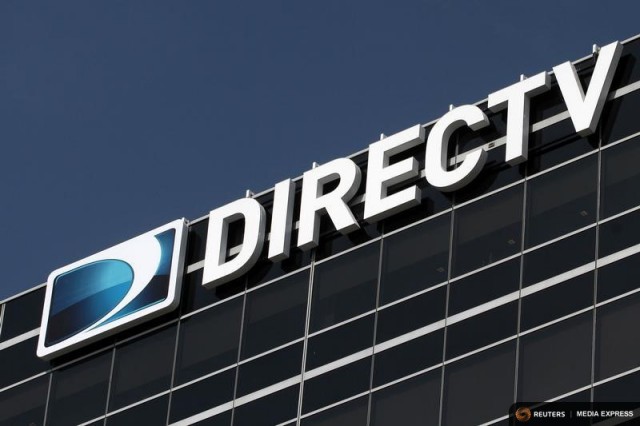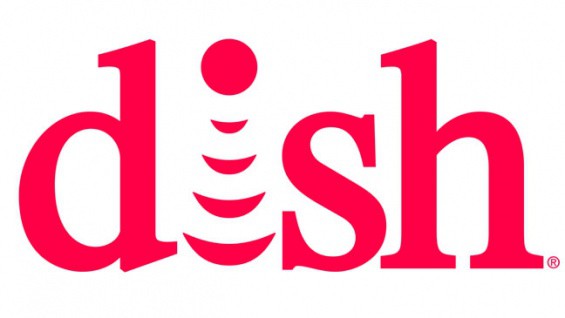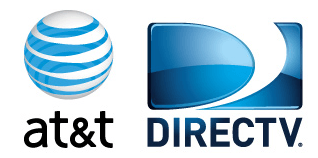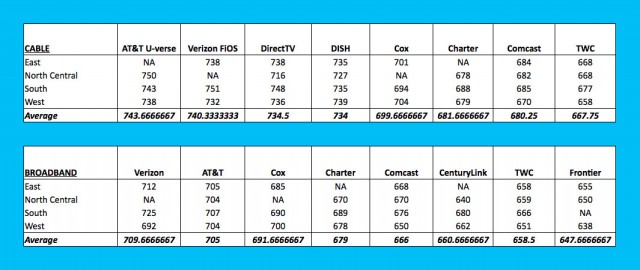TV Station Eclipse: 150+ Stations Could Be Blacked Out Thursday for U-verse, Dish, DirecTV Customers
Disputes over money may leave AT&T U-verse, Dish, and DirecTV customers staring at black screens on Thursday as three major station groups collectively representing more than 150 local over the air stations threaten to drop them if their respective carriage renewal deals are not signed.
- AT&T U-verse customers would lose access to 42 Tribune Media stations in markets like Chicago, Los Angeles, San Diego, Washington, and New Orleans.
- Media General’s 71 stations would be removed from DirecTV in cities like San Francisco, Buffalo, Austin, and Columbus, Ohio.
- Tegna (formerly Gannett) is ready to pull the plug on its 51 stations on Dish Network in cities like Washington, Dallas, Houston, Atlanta, Buffalo, New Orleans, and Seattle.

Weary customers are now enduring dire warnings their favorite local stations are about to be removed, with suggestions greedy providers won’t pay a fair price for their programming. Providers counter the station owners often demand double the rate providers paid under the old contract. Providers then pass those price increases along to the same customers that also get upset when stations and networks are blocked during hardball negotiating sessions.
Customers are fed up watching different disputes play out several times a year, often resulting in the loss of programming they paid to receive.
“It’s bad enough that we are losing channels but the bill never goes down either,” noted Dish customer Allen Gayla Shaw on the satellite provider’s Facebook page.
“I’m tired of providers holding viewers hostage for your egos,” echoed Sandi Montgomery Cockroft.


 Subscribe
Subscribe
 Two cable industry trade associations have asked the Federal Communications Commission to start collecting more fees from satellite television operators to cover the FCC’s regulatory expenses — a move satellite providers argue will cause consumers to suffer bill shock from increased prices.
Two cable industry trade associations have asked the Federal Communications Commission to start collecting more fees from satellite television operators to cover the FCC’s regulatory expenses — a move satellite providers argue will cause consumers to suffer bill shock from increased prices. “The FCC is off to a good start by declaring that Dish and DirecTV should pay regulatory fees to support the work of the agency’s Media Bureau for the first time and proposing setting the initial per subscriber fee at one cent per month in 2015,” said Matthew Polka, president and CEO of the ACA. “But given the FCC proposes that cable operators pay nearly 8 cents per month, per customer, it must do more, including requiring these two multibillion dollar companies with national reach to shoulder more of the fee burden next year that is now disproportionately borne by smaller, locally based cable operators.”
“The FCC is off to a good start by declaring that Dish and DirecTV should pay regulatory fees to support the work of the agency’s Media Bureau for the first time and proposing setting the initial per subscriber fee at one cent per month in 2015,” said Matthew Polka, president and CEO of the ACA. “But given the FCC proposes that cable operators pay nearly 8 cents per month, per customer, it must do more, including requiring these two multibillion dollar companies with national reach to shoulder more of the fee burden next year that is now disproportionately borne by smaller, locally based cable operators.” The ACA reminded the FCC it did not seem too concerned about rate shock when it imposed a 99 cent fee on IPTV providers like AT&T U-verse in 2014 without a phase-in.
The ACA reminded the FCC it did not seem too concerned about rate shock when it imposed a 99 cent fee on IPTV providers like AT&T U-verse in 2014 without a phase-in. While consumer groups were busy fighting the Comcast-Time Warner Cable merger, AT&T’s $49 billion purchase of DirecTV has largely flown under the radar, with no comparable organized consumer opposition to the deal. But that does not mean the FCC will approve it as-is.
While consumer groups were busy fighting the Comcast-Time Warner Cable merger, AT&T’s $49 billion purchase of DirecTV has largely flown under the radar, with no comparable organized consumer opposition to the deal. But that does not mean the FCC will approve it as-is. Love can be a fickle thing.
Love can be a fickle thing. The highest rating across television and broadband categories achieved by either cable company was ‘Meh.’ J.D. Power diplomatically scored both cable companies on a scale that started with “among the best” as simply “the rest.” Customers in the west were the most charitable, those in the south and eastern U.S. indicated they were worked to their last nerve.
The highest rating across television and broadband categories achieved by either cable company was ‘Meh.’ J.D. Power diplomatically scored both cable companies on a scale that started with “among the best” as simply “the rest.” Customers in the west were the most charitable, those in the south and eastern U.S. indicated they were worked to their last nerve.
